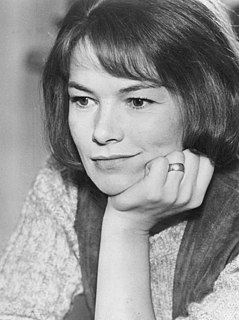A Quote by Morrissey
I still prefer horses to human beings.
Quote Topics
Related Quotes
In Judith Barrington's striking collection, Horses and the Human Soul, human emotions come ushered and accompanied by animal companions, especially the horses this speaker loves. Here they are witnesses, companions to the spirit, and as vulnerably mortal as human beings. Socially and politically alert, lamenting and celebrating, Barrington's passionate poems inscribe the broad range of her affections.
For centuries, humans have said to horses, 'You do what I tell you or I'll hurt you.' Humans still say that to each other -- still threaten, force and intimidate. I'm convinced that my discoveries with horses have value in the workplace, in the educational and penal systems, and in the raising of children. At heart, I'm saying that no one else has the right to say 'you must' to an animal -- or to another human.
There is no limit to suffering human beings have been willing to inflict on others, no matter how innocent, no matter how young, and no matter how old. This fact must lead all reasonable human beings, that is, all human beings who take evidence seriously, to draw only one possible conclusion: Human nature is not basically good.


































